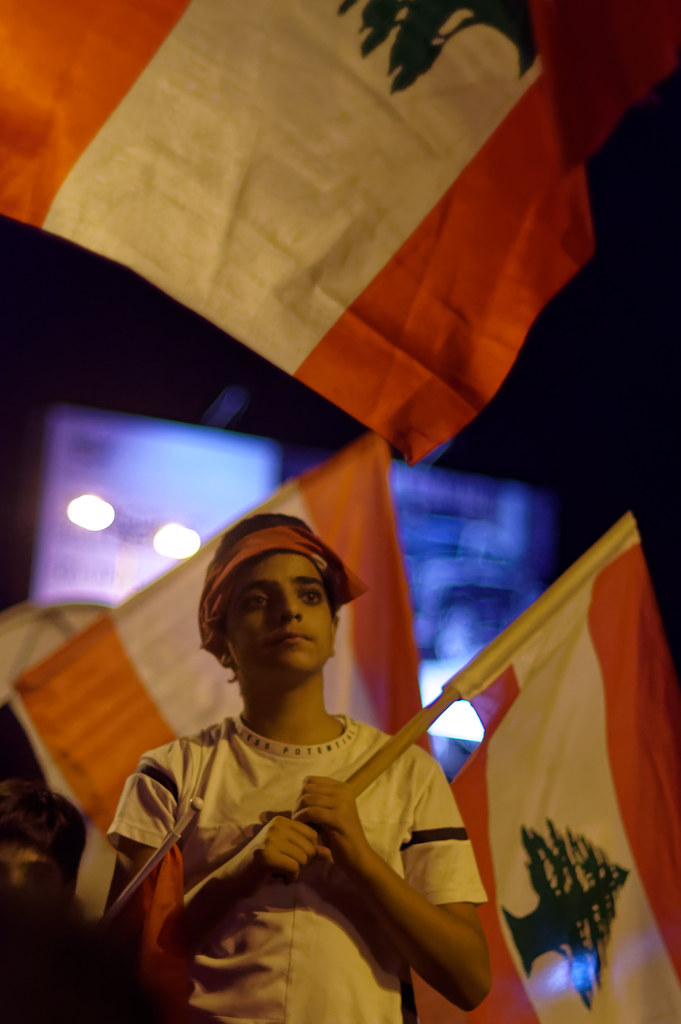Lebanon: Saved then Ruined by Sectarian Power-Sharing (February)
In February, 2020 the Rights Writers were asked to discuss how a topic has evolved throughout the past decade (2010-now) and look at the issues that have changed significantly during this time period and how these recent changes have affected current approaches to this topic from governmental and non-governmental actors.

As protests in Lebanon rage, post-conflict governance has achieved new salience, as both a constant subtext for current events and an outstanding question continuing to demand resolution. In the Middle East in particular, the past decade has exposed failures of governance through the Arab Spring and necessitated the imposition of new systems of governance (which, in turn, have also failed). Furthermore, ongoing conflicts have assumed a sectarian tone, refreshing the question of how to manage ethnic and religious difference in government.
The Lebanese civil war was born of weak governance and surging sectarian militias, exacerbating existing tensions between Maronite Christian and Muslim communities. Communal violence escalated resulting in an outright civil war that lasted from 1975-1990.
Following the end of the civil war, the Lebanese government was designed on a model of explicit power sharing between religious groups pursuant to the UN-brokered Taif Agreement. Pursuant to accepted norms, the nation’s President must be a Maronite Christian, while the Prime Minister must be Sunni, and the Speaker of the Parliament must be Shia. Furthermore, a preassigned number of seats in the Parliament are assigned to each of 18 different religious groups and sects. Political parties have then been designed around sect. While Lebanon is more religiously diverse than other Middle Eastern nations, and has a significantly larger Christian population, Sunni-Shia sectarian divides in almost exclusively Muslim nations have been just as politically salient, and similar models of explicit power sharing have been attempted across the Middle East. The Lebanese case is particularly apt for exposing both the benefits and hindrances associated with such a system, however, because of its longevity.
On the most basic level, this ‘confessionalism’ model has served Lebanon well – it has kept the peace. However, it has also had profoundly deleterious effects on human rights and economic well-being that protestors are currently exposing.
The first such effect is that political participation in Lebanon has been heavily premised on religion and patronage systems. Because of vote allocation by religious group, political candidates campaign almost exclusively to coreligionists. While they may tap into issues of concern for Lebanese people more generally, they often argue that they and they alone will be able to secure an advantage or a ‘fair share’ for members of their group. Voters typically select parliamentary candidates only among the narrow pool affiliated with their sect. This not only limits voter choice, it also creates patronage systems dominated by powerful families and keeps sectarian tension ever-present in the political discourse. These patronage systems are resistant to change, resulting in the systematic exclusion of women and LGBTQ individuals from political power. They encourage overt corruption, meaning that government programs catered to safeguarding vulnerable populations fail to do so and their budgets are instead used to line the pockets of the powerful.
A primary criticism of governance involving explicit power sharing is that it casts all politics in an ethnic or religious light and continually surfaces associated adversarialism. This is a precarious situation for human rights – it can easily result in relapses to mass violence or constant low-level discrimination and disenfranchisement. It incentivizes parties to the political system to seek advantage over one another instead of working in the popular interest. In a system of explicit power sharing, there are no unity candidates.
The Lebanese experience has generally validated this criticism. There have been semi-regular waves of anti-government protest in the past decade, and the narrative of various protest groups has generally been that things would be better if their respective sect had a greater share of the power. Protestors brandished the flags of their sect-based political parties rather than the Lebanese flag. However, in the protests that began in fall of 2019 and continue at present, protestors have instead rallied around the message that they are all Lebanese and suffering under the same inept government. This is a sudden shift from prior years, but may represent a mounting and incurable frustration with the status quo.

In a sense, the same protests that have redeemed the Lebanese government (and the power-sharing system it represents) have also damned it. The Lebanese government as currently structured seems to have cured sectarianism; Lebanese of all stripes are working together to demand better. However, the counterfactual is impossible, and perhaps the Lebanese population has evolved past sectarianism despite its system of government rather than because of it.
The protestors were mobilized by massive government failure to spend money efficiently, furnish adequate social services, and protect its population against environmental degradation. While these are not overt violations of human rights, a government’s failure to safeguard the human rights of its citizens against economic forces out of graft and sheer incompetence is itself a violation. Unfortunately, this failure is itself a product of the system. Sectarian infighting distracts Lebanon’s leaders from the more important task of governing. The need to prop up patronage systems built on sect requires routine abuse of government funds. And even absent ill-intent or graft, the system is legally so cumbersome (so as to safeguard each minority from every other) that it impedes basic functioning.
While Lebanon’s system is certainly better than civil war, and might provide a short-termist solution to ethnic and sectarian fighting worldwide, it cannot adequately serve the needs of a population in the long term. Once a nation’s citizens are will to set aside ethnicity or sect, their government should allow them to, and the usual protections of liberal democracy should take the place of explicit power-sharing.
